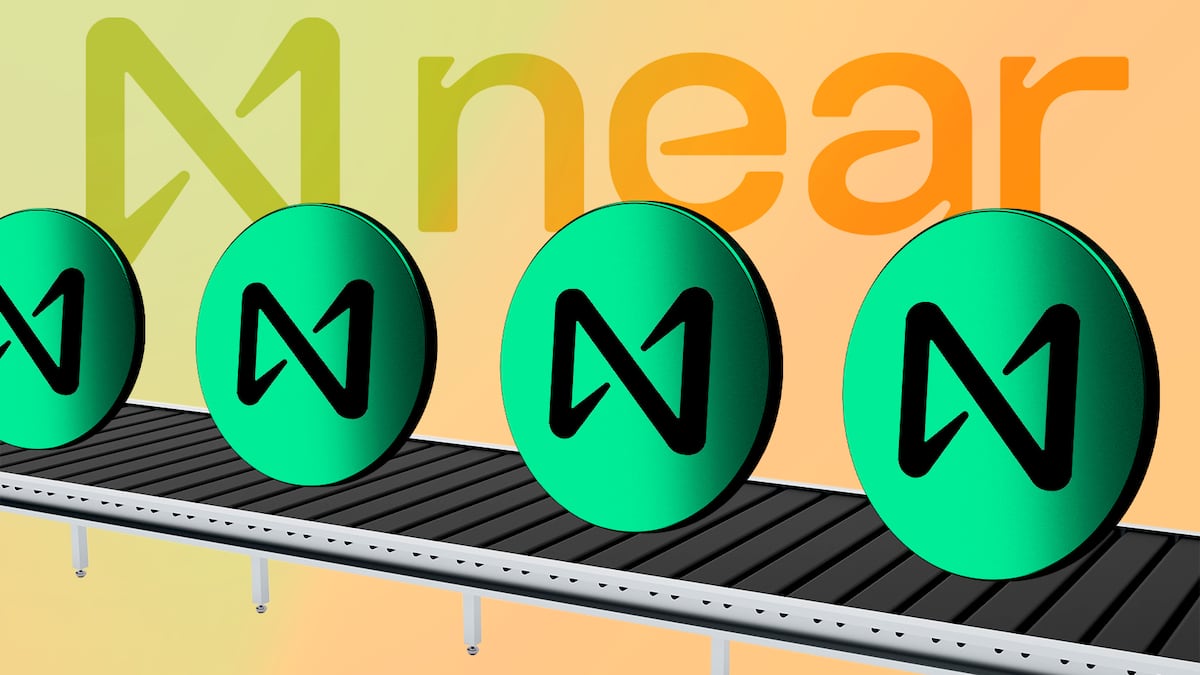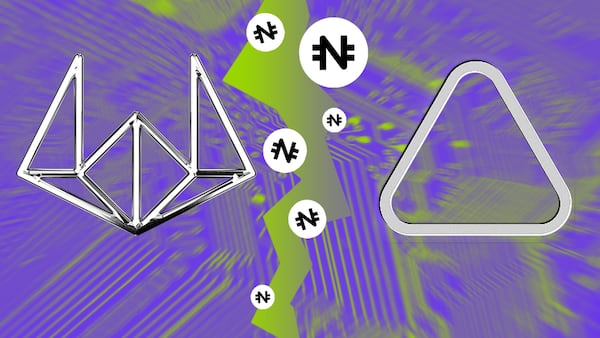- Near’s dev team wants to make the token scarcer.
- Validators to vote on the upcoming upgrade.
- Near’s token is down 90% from its peak.
The developers behind Near, a $2.8 billion blockchain, are pushing through an upgrade that will reduce the chain’s inflation by 50% despite pushback from within the project’s community.
A governance vote held in the summer to halve Near’s annual token inflation to 2.5% failed to pass, due to falling short of the required quorum.
Rather than scrap the idea, Near’s developers have pivoted: the blockchain will trigger the halving automatically once 80% of validators upgrade to a new version.
Critics of the plan, like Chorus One, a staking service provider, say it sets a “dangerous precedent” that “undermines the integrity” of the blockchain, since a governance vote on the matter failed. Chorus One said the move signifies that Near’s developers can unilaterally enforce decisions not agreed upon by blockchain participants.
Validator earnings from token rewards would reduce unless the price of Near rises to a level that offsets the halving. Near’s token is down almost 90% from its 2022 peak of $20.
Inflation control
Inflation is how blockchains like Near, that use a proof-of-stake consensus mechanism, create new tokens.
Validators earn these newly created tokens as a reward for processing transactions and securing the chain.
Since validators stake tokens on the chain to perform their role, token inflation is akin to interest payments on those tokens.
But these newly created tokens increase the total supply of circulating coins, potentially leading to a long-term decline in their value.
The proposed cut was billed as a way to tighten Near’s token supply and improve its value for investors.
Other blockchains, including Solana, Polkadot, and Celestia, have also tried to limit their token inflation. Polkadot has capped its token supply at 2.1 billion coins, and in March, Solana stakeholders rejected a plan to reduce emissions.
Consensus by code
Supporters of the move like Louis Thomazeau, investment partner at L1D, and Evgeny Kuzyakov, co-founder of Near infrastructure provider Fast Near, say the voting data tells a different story.
While the vote did not reach quorum, over 90% of the participating validators supported reducing Near’s token inflation.
“[Ten times] more stakers voted in favour of the proposal than against it,” Thomazeau posted on X. “With ten more votes, it’s pretty clear what the community wants.”
Near’s blockchain upgrade will begin on October 28 and last three weeks.
Validators can signal their support by upgrading to the new software.
Those against the move can shift their stake to pools that voted against the governance proposal in the summer.
Validators like Chorus One and Everstake did not support the proposal, according to the vote details.
By swapping a binary governance vote for a rolling referendum, Near’s inflation cut now rests on the validators’ convictions.
Osato Avan-Nomayo is our Nigeria-based DeFi correspondent. He covers DeFi and tech. Got a tip? Please contact him at osato@dlnews.com.





